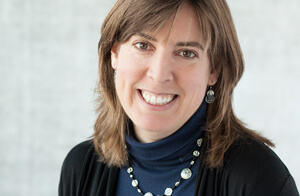Resets, Balance, and the Future of Philanthropy

Last week, Jim Canales encouraged fellow foundation leaders to “Alter Our Default Attitudes,” noting that it is often habits, assumptions, and predispositions (or organizational culture) — not strategy — that keeps philanthropy from performing at its best.
This was an engaging read for us because in looking at how foundations need to adapt as the role of philanthropy changes, it surfaces themes similar to those we observed in the work we undertook with Emerging Practitioners in Philanthropy in 2013. Together we asked a wide range of foundation leaders: How must the social sector adapt to succeed in meeting 21st Century challenges and opportunities?
Canales touches on the most salient issues facing foundations today, from innovation to data and metrics, and the tension between being a leader and being part of something bigger. His focus on “default attitudes” deftly encourages funders to consider new ways of thinking, doing, and being — and while it sometimes reinforces the obvious (like the need to be flexible and responsive to a changing world), it also challenges foundations to “reset” how they approach the work.
For example, in advising a shift from “What’s new” to “What’s working,” Canales acknowledges the importance of balancing urgency with patience in solving intractable problems. Similarly, changing the default from “I’ve got this” to “We’ve got this” speaks to the importance of working collaboratively. In our 2013 analysis, we saw similar issues emerge, but for us the takeaway was less about moving from “this” to “that,” and more about the need for foundations to balance two seemingly contradictory approaches simultaneously. Working with urgency, while also being able to work as long as it takes, will be critical in meeting needs that cannot wait and sticking to it long enough to really make a difference. Working collaboratively also means working in a distributed way — that is, distributing the effort as well as the credit for a job well done and/or the accountability for what falls short. Finally, we heard that foundations must acknowledge the inherent power dynamics in their work before they can exercise that power in effective and appropriate ways.
In short, we think Canales raises excellent questions for the field as funders determine what role they want to play in the 21st Century, and we think that our 2013 report may be a useful companion read. We also want to emphasize that our report reflects the input of foundation professionals — many of them young and/or emerging leaders in the field — so an additional piece of counsel for foundations is: Listen to people in your own organizations, even if they are not those in the board room or the C-suite. There are some good ideas brewing that may just change your “default.”
This post is a collaboration between Heather Gowdy and Melissa Mendes Campos.

Comment section